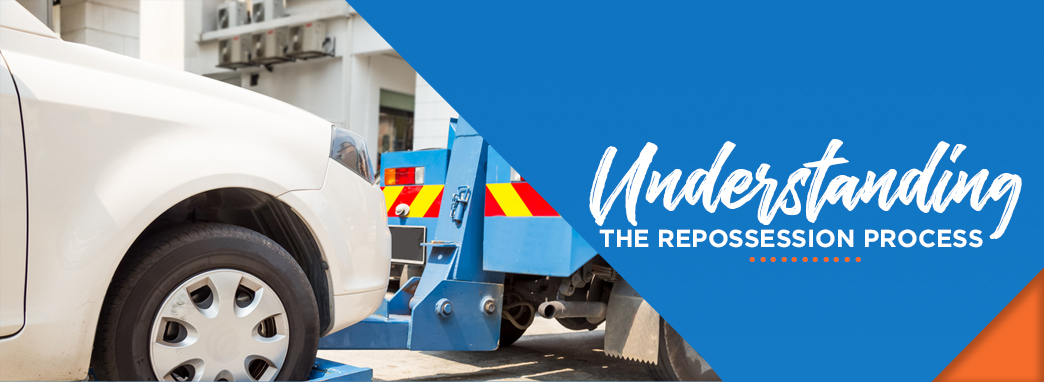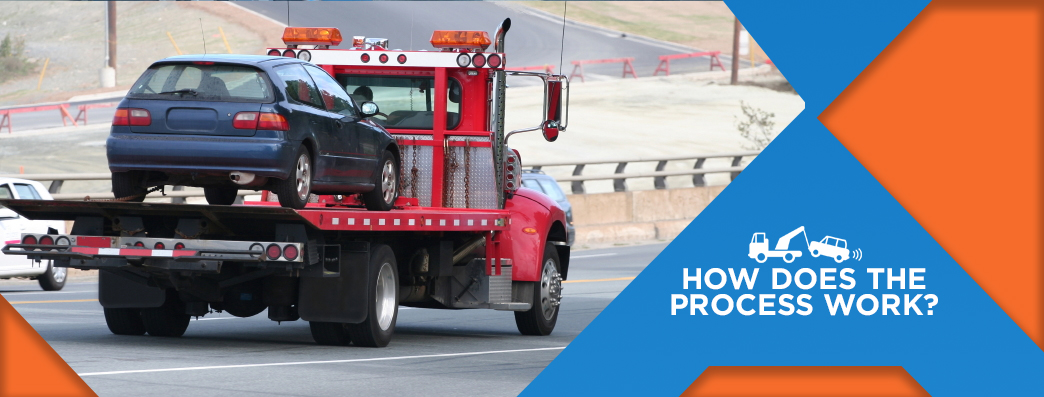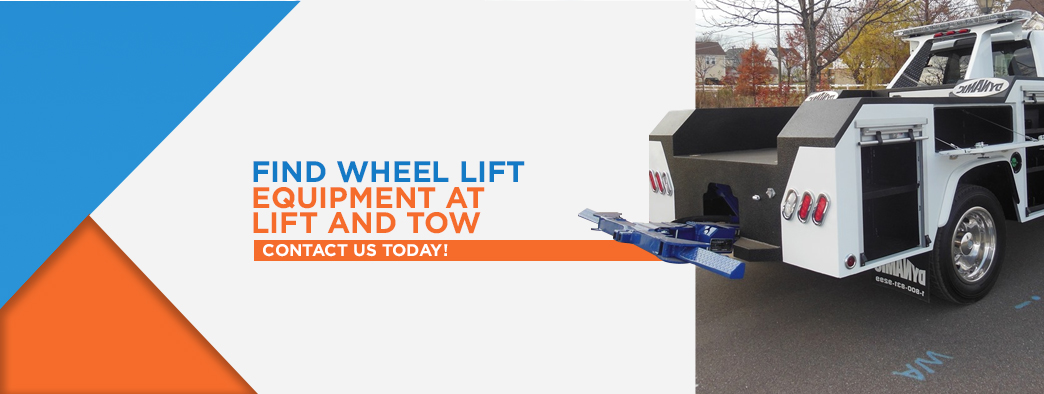
Purchasing a car, truck or SUV is an investment — one that may take several years to pay off. If you’re experiencing unforeseen financial difficulties and can’t pay on your car loan, you could be subject to auto repossession at the hands of a repo agent.
Not sure what that means? Let’s discuss the meaning of repossession, what the process looks like and what you can do to get your repossessed car back.
Table of Contents
- What Is Car Repossession?
- How Does Repossession Work?
- How Long Does the Repossession Process Take?
- How to Get a Repossessed Car Back
- Repossession Meaning FAQs
- Can You Become a Repo Agent?
- Find the Right Repo Equipment for the Job
What Is Car Repossession?
Nearly 80% of new cars and about half of used cars are purchased using some form of financing. When you borrow money from a lender, you agree to make monthly payments until the car is paid off and you own it outright. However, you could fall behind on payments.
Automobile repossession is an act where a lender reclaims a vehicle after a period of nonpayment from a debtor. Lenders authorize repo agents to retrieve defaulted vehicles on their behalf. Simply put, auto repossession results from failing to make payments on a car you have yet to pay off in full.
How Does Repossession Work?
Once you default on your loan payments, your lender can take action to reclaim the vehicle. In some states, lenders are not required to issue you a notice if they are about to repossess your car. However, lenders are required to inform delinquent subjects of a notice to sell. There are three basic types of notices you may receive during a repossession:

- Acceleration notice: This document is issued by the lender to inform you that your loan is defaulted and that you must pay the remaining balance to keep the vehicle. If you receive this type of notice, you should immediately contact your lender to negotiate an alternate payment plan. In some states, lenders must send a prior notice informing you of intent to issue an acceleration notice.
- Opportunity to cure: This notice informs you that your loan must be repaid by a specific date if you wish to keep your car. An opportunity to cure may be issued before or after a repossession.
- Post-repossession notice: This letter would inform you that your car is about to be sold. Lenders are required by law to issue these notices at least 10 days before a planned sale. A repossessed vehicle may be sold privately or at an auction.
Tow truck drivers play a crucial role in the repossession process, as they are responsible for safely retrieving the vehicle. To become a tow truck driver, one must meet specific requirements and qualifications, which you can explore further in our article on the requirements to be a tow truck driver.
Already dealing with a repo? Here’s what to do if your car gets repossessed.
What Happens When They Repo Your Car?
If you receive one of the first two notices, you should act immediately to work out a payment plan with your lender. Understanding what happens when your car gets repossessed is essential for anyone facing financial difficulties. The process can be overwhelming, but knowing the steps can help you navigate the situation better.
This is what normally happens when they repo your car:
- Repossession order: A repossession order is a legal document that authorizes your lender to take back possession of your vehicle per state laws and regulations governing repossession practices. This order often outlines the repossession process, including when and how it will occur.
- Repossession: Once a repossession order is enacted, the repo agent could come to your house without notice and take the vehicle. The agent will usually be equipped with a duplicate key for the vehicle but could also enter the car by picking the lock and hot-wiring the engine.
- Selling: Once repossessed, the lender can sell the vehicle to recover the outstanding debt.
- Repossession fees: Even if the remaining balance on the vehicle is recouped at the resale action, you may still owe the other fees associated with its repossession. This includes repossession fees, storage costs and the outstanding balance on your loan.
Considering a voluntary surrender? Learn whether a voluntary car repossession will save your credit score.
How Long Does the Repossession Process Take?
Legally, lenders can act whenever they choose, even if it means contacting creditors and repo agents the day after a missed payment.
Yet, depending on your standing with the lender, the duration between a defaulted payment and a repossession can take days or months. If you have no prior defaults on your payment plan and have always paid on time for three solid years, the lender is less likely to go all out in the weeks following your first default.
The lender may be more inclined to take immediate action if this is your second or third delinquency. Many people wonder how often do car repossessions happen. Statistically, the frequency can vary based on economic conditions, but lenders typically prioritize cases based on payment history and defaults.
How to Get a Repossessed Car Back
When dealing with repossessed cars, understanding your options is crucial to reclaiming your vehicle. Once your car has been repossessed, you can use several different methods to get it back, but each requires you to pay the balance of the loan and any fees related to the vehicle’s repossession.
- Reinstate the loan: This is the most commonly chosen option and often the least costly route once a car has been repossessed. To bring things up to date, you would have to pay all outstanding late payments as well as repossession and storage fees for the vehicle.
- Redeem the vehicle: This far-costlier option involves paying off the outstanding balance on the loan plus all repossession and storage costs and any late payment fees. If you fell behind on loan payments due to financial hardship, redeeming your repossessed vehicle might not be a realistic option since you would be asked to pay off the loan’s entire remaining value, plus fees, in a single payment.
- Bid on your vehicle at auction: A third possible option is to show up at the auction and bid on your car. If you win the vehicle back, you will still be required to pay any outstanding repossession fees. If the auction price of the vehicle falls short of the remaining loan balance, you will also be required to pay off that amount.
- File for bankruptcy: If you file for bankruptcy before the sale occurs, this will place an immediate stay on the sale for a select period, giving you time to produce the funds to reclaim the vehicle. However, bankruptcy can cost hundreds of dollars in legal fees and leave a blemish on your credit for up to 10 years. A repossessed vehicle that you cannot pay down is usually not a good enough reason for an option as drastic as bankruptcy.
Repossession FAQs
Above, we have covered the basics of auto repossession and the repo process. If you’re still concerned about losing your vehicle due to missed payments, here are some answers to frequently asked questions about car repossession.
How Many Car Payments Can You Miss Before Repo?
Technically, a lender could initiate the car repossession process the day after you first default on a loan. Still, most lenders treat cases on a priority basis, going after second and third-time defaulters first.
How Can I Avoid Repossession?
When a lender decides to repo a car, your only option is to negotiate a plan to bring the payments back up to date or pay off the remaining balance in full. Financially, there is no other way out of the matter.
What If I Hide My Car From a Repo Agent?
If you hide your car, the repo agent will step up efforts to find and seize the vehicle. In many states, it is legal for a repo agent to walk onto your property to reclaim a vehicle. If you manage to hide the vehicle for any length of time, the repo agent will increase charges to the lending bank, raising the amount you will ultimately owe.
Do They Repo Cars on Weekends?
It depends. When and where a vehicle can be repossessed varies based on a lender’s policies and the laws governing repossession in your area. When allowed, many repo agents work on weekends. Don’t count on a reprieve from potential repossession just because it’s Saturday or Sunday. If you’re concerned about the time of your car repossession, you may want to consult your lender.
What If I Successfully Keep My Car From Getting Repossessed?
There is no way to blow off car loan debt and still drive freely. Even if you manage to keep the vehicle in question off the radar, the lender will notify the DMV, making it impossible for you to renew your driver’s license or update your plate tags until the matter is resolved.
As an alternative to repossession, the lender may file a legal request known as a replevin, where the lender asks the court to issue an order requiring the debtor to pay off the remaining loan balance. If the debtor still fails to pay up, they could face further legal penalties. If you allow a situation to escalate to this level, you may be subjected to a lien where the loan balance is garnished from your future wages.
How Long Will a Repo Man Look For a Car?
A repo agent will pursue a vehicle for however long the lender is willing to pay for the services before taking some alternate form of action, such as a replevin.
<h2id=”Agent”>Can You Become a Repo Agent?
You can become a repo agent if you have the drive to carry out the tasks of this profession. Given the obstacles repo agents often face, you must have a strong personality to succeed in this line of work. The main objective is to fulfill the orders of the lending banks and do what it takes within the law to seize each outstanding vehicle. The job has its perks, but you can also meet resistance when you go onto properties to reclaim vehicles. Therefore, it helps to be formidable in stature.
As a repo agent, you must maintain an emotionally unaffected stance while on the job. You will also need the right equipment to seize vehicles in various places, including narrow hiding spots.

Find the Right Repo Equipment for the Job
At Lift and Tow, we sell underbody wheel lifts, super series and self-loading wheel lifts that allow us to tow vehicles of all sizes. Contact Lift and Tow today for more information about our lift equipment.